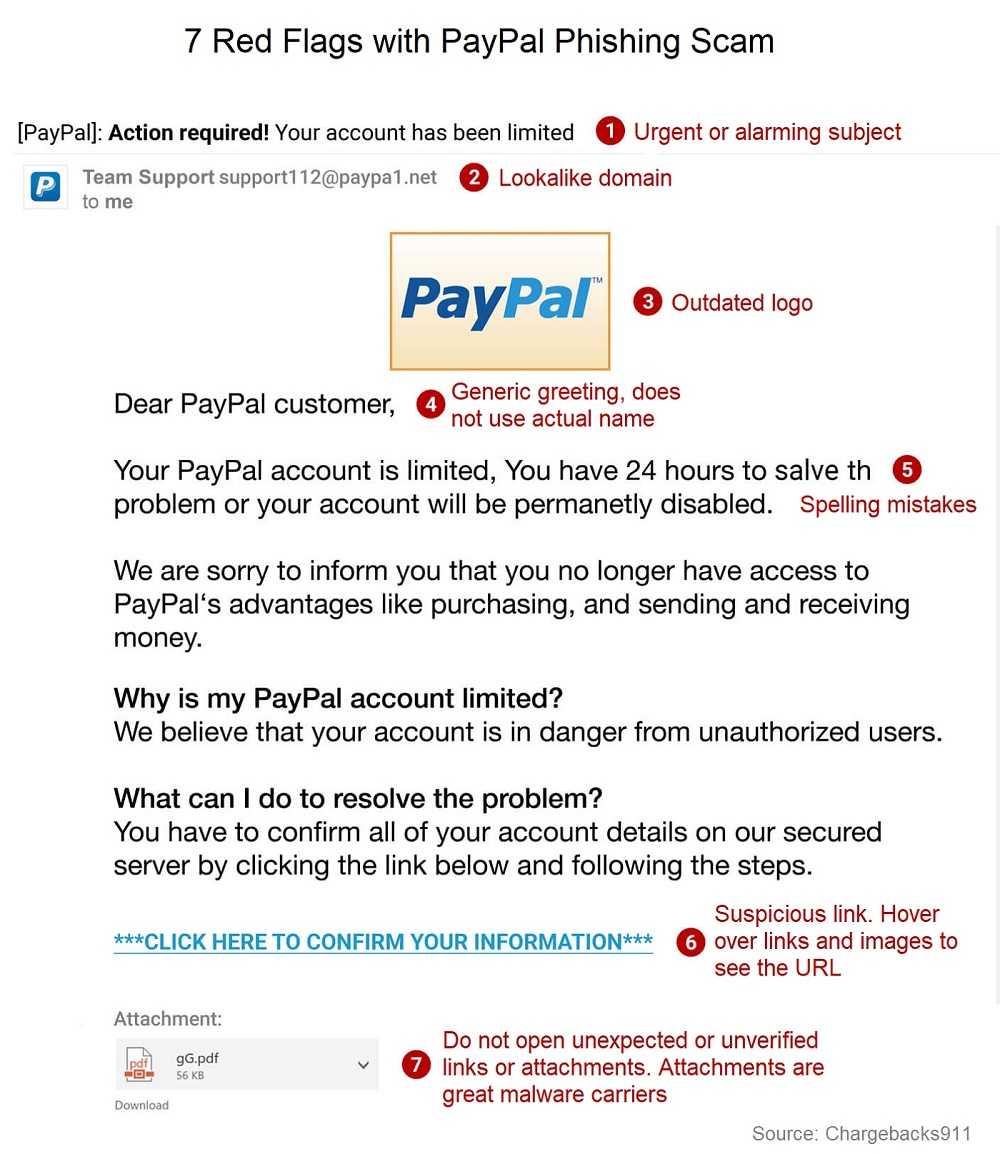PayPal Users Beware: Email Phishing Attacks Surge 600%
July 25, 2025
PayPal, one of the top online payment systems currently has 278 million users in the U.S. But with that hefty number comes an unfortunate reality—cybercriminals are targeting victims like never before. Attacks against PayPal users alone are up a whopping 600% while cyberattacks everywhere are rising fast. Here’s what you should know.
“Action Required”
McAfee confirmed there’s one campaign responsible for the remarkable 600% leap in attacks so far this year. It’s the email phishing campaign called “Action Required” and it works like a charm. Attackers are sending PayPal users legitimate-looking emails demanding they update their account details within 48 hours. If they don’t, their account gets suspended. Hackers know using urgency and fear as phishing hooks gets victims to react quickly and before thinking.
“Action Required” is far from the only hacking campaign out there but it’s one having tremendous success. It shows how easily slick email phishing can reel-in we humans. And since there’s nothing we can do about being human, online vigilance is a necessity. Here are a few tips to help with that.

Email Phishing Tips
Any suspicious or unexpected email, especially those involving payments or invoices, are sure signs of a scam and shouldn’t be paid. If you get a phishing email about your account, report it immediately to the business. Always enable 2FA for all accounts when available since it adds another level of identity verification. And don’t hesitate to give a suspect email a good look for phishing giveaways like whom the sender is, urgency, bad graphics and logos, and poor spelling and grammar.
It’s also true that many of us inadvertently help online criminals do their job by using weak security practices. Easy-to-guess and reused passwords, outdated security and other software help give cyber-creeps the key to our online kingdom. So, don’t be a victim—be proactive instead.